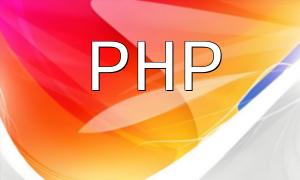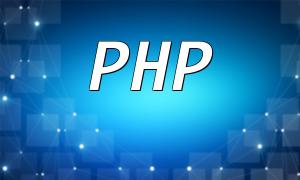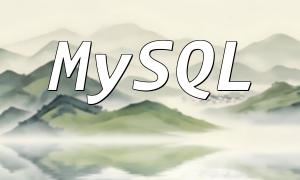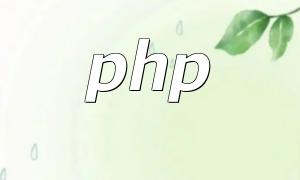The Importance of PHP Frameworks in Development
As one of the most widely-used server-side scripting languages, PHP has a strong ecosystem supported by powerful frameworks like Laravel, Symfony, and ThinkPHP. These frameworks significantly enhance development efficiency and provide a robust foundation for building scalable web applications. Understanding and mastering the core functionalities of these frameworks is essential for developers looking to streamline their workflow and maintain clean codebases.
Effective Use of Routing Features
Routing determines how incoming URLs are interpreted and mapped to specific controllers or actions. A well-structured routing system improves project maintainability and scalability.
Here are key practices to consider when working with routing:
- Routing Configuration: Design clear and flexible routing rules using regular expressions to match parameters dynamically and pass them to the correct controller methods.
- Redirects: Use the framework's built-in redirect methods or define custom rules to manage URL redirection and user navigation smoothly.
- URL Generation: Rather than hardcoding URLs, utilize the framework’s built-in URL generation functions to ensure consistency and avoid errors.
Database Operation Best Practices
Interacting with databases is a core part of web development. PHP frameworks offer various tools to perform CRUD operations efficiently and securely.
- Security: Always use parameter binding or the ORM provided by the framework to prevent SQL injection and ensure data security.
- Performance Optimization: Implement caching strategies for frequently accessed data using systems like Redis or Memcached to reduce database load.
- Transaction Management: For operations requiring atomicity and consistency, use the framework's transaction support to maintain data integrity.
Leveraging Template Engines
Template engines help separate business logic from presentation, allowing for cleaner code and smoother frontend-backend collaboration.
- Template Syntax: Each framework may have its own syntax. Familiarize yourself with the specific conventions and practice building dynamic views.
- Template Inheritance: Reuse layouts across multiple pages by implementing base templates to reduce redundancy and improve maintainability.
- Template Caching: Enable caching for compiled templates to boost rendering speed and enhance the overall performance of the application.
User Authentication and Authorization
Authentication and access control are essential for any modern web application. PHP frameworks typically offer built-in features to manage user sessions and permissions securely.
- User Authentication: Verify user identities through login systems and maintain session state using cookies or tokens provided by the framework.
- Access Control: Enforce role-based permissions to ensure users can only access functions they are authorized to use.
- Remember Me Feature: Improve user experience by implementing persistent login functionality that reduces the need for repeated logins.
Conclusion
Mastering key features of a PHP framework is critical to building reliable and efficient web applications. Whether it's routing, database integration, template handling, or user access control, each element plays a vital role in application performance and maintainability. By continually refining these skills and applying best practices, developers can confidently deliver scalable, secure, and high-quality software using PHP frameworks.









